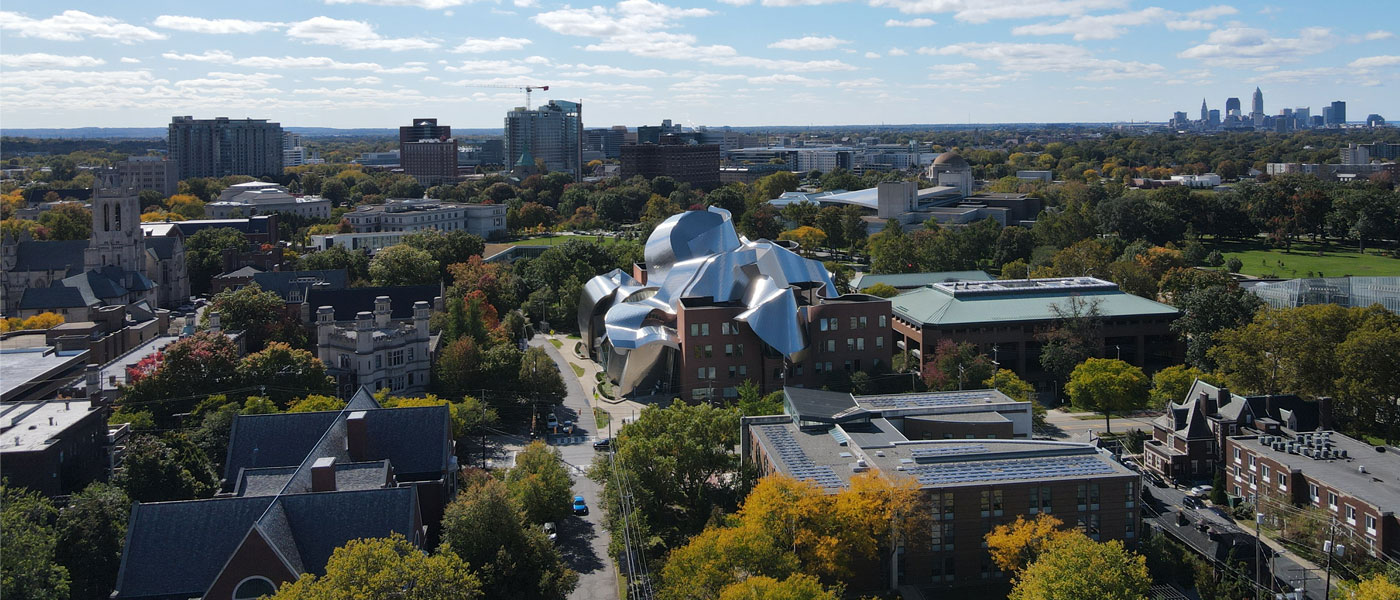Cleveland Scholars program to cover total cost of attendance—without loans—and include mentored, paid research or internship experience
President Eric W. Kaler announced today that eligible Cleveland and East Cleveland public high school graduates admitted to Case Western Reserve will receive financial support covering the entire cost of attendance—as well as a mentored, paid research or internship experience on campus.
The move—which starts with Cleveland Metropolitan School District (CMSD) students enrolling in the fall of 2024—marks a dramatic expansion of the university’s seven-year-old Cleveland Scholars program, which guaranteed a minimum of full tuition. While students often qualified for substantial additional aid, the new model eliminates initial financial uncertainties.
“Cost will not keep these terrific students from attending Case Western Reserve,” President Kaler said of the program, which also eliminates student loans. “We are committed to our community, and committed to these promising students. We want them to have every opportunity to thrive on our campus.”
“We are thrilled that Case Western Reserve University is expanding the Cleveland Scholars Program. The decision represents an extraordinary act of generosity that will make a difference in the lives of deserving CMSD students,” said CMSD CEO Warren Morgan. “The fact that some of our most talented graduates will now have extra incentive to continue their education at one of America’s leading universities will pay immediate dividends to CWRU and all of Northeast Ohio.”
All admitted students who attended a CMSD school—including CMSD partner charter schools—or East Cleveland public school for their final two years of high school are eligible to become Cleveland Scholars.
Case Western Reserve welcomed its first Cleveland Scholars in 2017. The university also annually welcomes two cohorts of student leaders primarily from urban environments through its 2017 partnership with The Posse Foundation; last year the university also joined QuestBridge, a national organization committed to providing low-income, high-achieving students opportunities to thrive at leading national colleges and universities.
“These programs allow us to attract exceptional students from across the country who otherwise might not consider Case Western Reserve because of cost,” Vice President of Enrollment Management Rick Bischoff said. “President Kaler challenged our team to be just as ambitious in creating a model that not only eliminates financial obstacles for Cleveland students, but also provides additional programs to enhance their experience at Case Western Reserve.”
The expanded Cleveland Scholars program will cover tuition and fees, on-campus housing, books, supplies and personal expenses. No loans are involved. As with previous Cleveland Scholars, the university will also rely on continued support from key partners such as College Now Greater Cleveland, Say Yes! Cleveland and the John Huntington Fund for Education.
For more information, contact Bill Lubinger at william.lubinger@case.edu.

